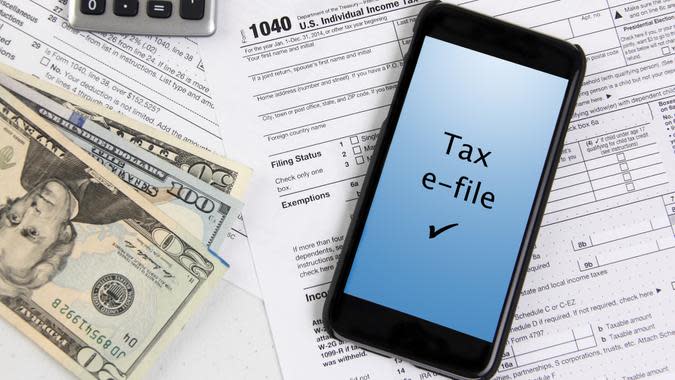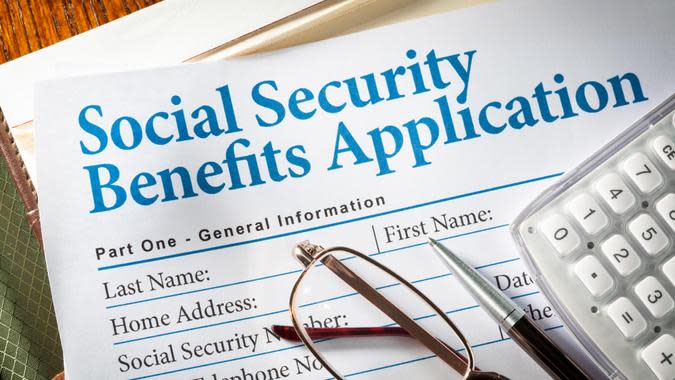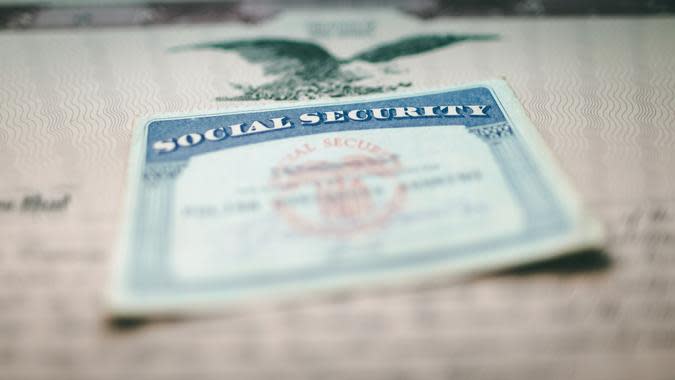8 Reasons You Might Not Get Social Security

For many American workers, Social Security benefits are the golden carrot awaiting them at the end of a long career. While you can begin to take some of your Social Security benefits starting at age 62, you continue to receive a greater amount every year you delay taking the benefits, up to age 70, according to the Social Security Administration. But this assumes you have earned enough credits to receive these benefits at all.
Find Out: Cutting Expenses in Retirement: 6 Home Items To Stop Buying
Read Next: One Smart Way To Grow Your Retirement Savings in 2024
Not every worker gets to look forward to these benefits, and it’s better to know in advance so you can either rectify the situation or make other financial plans for retirement. There are a handful of cases where a worker may not have earned Social Security.
Here are six reasons you might miss out:

You Don’t Have Enough Social Security Credits
In order to pay your way into the Social Security system, you have to earn “credits” through working that enable you to qualify for these benefits, which kick in at retirement, according to the American Association of Retired People (AARP).
In 2023, you earned one credit for every $1,640 in wages or self-employment income that you earn. Four credits is the most you can earn in one year, according to the Social Security Administration. Every person needs 40 credits total to qualify for Social Security benefits of any kind.
So if you haven’t worked enough to earn all 40 credits, you may not qualify for these benefits.
Check Out: 6 Changes Coming to Social Security in 2024 and Who Could Be Affected Most
Learn More: How To Get $340 Per Year in Cash Back on Gas and Other Things You Already Buy
Sponsored: Credit card debt keeping you up at night? Find out if you can reduce your debt with these 3 steps

You’re One of These Government Employees
While the government generally takes care of its employees, there are some state, county and municipal exceptions for employees who do not receive Social Security benefits. Instead, these employees pay into, and receive, state-funded pension plans. These include:
U.S. government employees hired before 1984 — they receive pensions under the old Civil Service Retirement System
Railroad employees — their pension system originates from the 1930s
Foreign nationals who work in the United States for their home governments, such as ambassadors, or workers for international organizations, such as the United Nations
Most safety personnel/first responders such as police and firefighters
Many K-12 teachers
Discover More: 6 Things Retirees Shouldn’t Spend Big Money on While Traveling Abroad

You Failed To Pay Self-Employment Tax
Many self-employed business owners may not realize that you are now responsible for paying directly into Social Security twice over: once as an individual and once on behalf of your business. Self-employment tax must be paid along with your federal tax return.
If you either do not file a tax return, or do it incorrectly, you may not have enough Social Security credits to receive benefits when you retire (and, if you continually do not pay these taxes, you can get into legal trouble).

You Failed the Social Security Earnings Test
Early claimers who are still working have to pass the Social Security earnings test in order to qualify for benefits. There is no such test once you reach full retirement age.
In 2023, the SSA withheld $1 for every $2 in earnings over $21,240 and $1 for every $3 in earnings over $56,520.

You Have Debt That Qualifies for Garnishment
It’s hard for private lenders to snatch your Social Security payments, but your benefits can be garnished to satisfy certain kinds of other debts. Among them are alimony, child support and restitution, but the states determine what constitutes a valid order for garnishment. If your benefits have been garnished for any of these reasons, contact the appropriate state agency, not the SSA.
If you guessed that tax debt is one of the other exceptions, you would be correct. The Department of the Treasury can garnish up to 15% of your Social Security benefits every month until your tax debt is paid. The Treasury Department can also garnish your benefits for nontax debt, including any federal student loans you might have defaulted on.
Read More: $2 Million in Retirement Savings: Here’s How Much You Could Withdraw per Year

You’re Divorced
If you are divorced and did not earn enough credits to receive Social Security benefits on your own, and are counting on getting half of your ex-spouse’s benefits, be careful. You have to be single, 62 years old or older and have made less money and benefits than your ex-spouse. Also, if you were married fewer than 10 years, you are not eligible to claim your spouse’s benefits, according to Investopedia.

You Retire in a Foreign Country
If you retire outside of the United States, the District of Columbia, Puerto Rico, the U.S. Virgin Islands, Guam, the Northern Mariana Islands or American Samoa, you may not be able to receive Social Security payments.
The countries where the U.S. will not send payments include Azerbaijan, Belarus, Cuba, Kazakhstan, Kyrgyzstan, Moldova, North Korea, Tajikistan, Turkmenistan or Uzbekistan.
There may be exceptions, but you will need to check with the Social Security Administration’s “Payments Abroad Screening Tool” to determine your eligibility to receive payments while living outside the U.S.

You’re an Immigrant
Immigrants who came to the United States later in life and have not been able to earn the 40 necessary work credits to qualify for Social Security benefits will not be able to receive these funds at retirement.
There is one solution, however, which is to earn six work credits in the United States, which will entitle the person to prorated U.S. benefits. That can be combined with prorated benefits from their former country, which is known as a “totalization agreement.”
Andrew Lisa contributed to the reporting for this article.
More From GOBankingRates
Rare Bicentennial Quarter Has Nearly $20K Value -- Plus 7 More Worth Big Money
This is One of the Best Ways to Boost Your Retirement Savings in 2024
6 Things You Should Never Do With Your Tax Refund (Do This Instead)
This article originally appeared on GOBankingRates.com: 8 Reasons You Might Not Get Social Security

 Yahoo Movies
Yahoo Movies 
